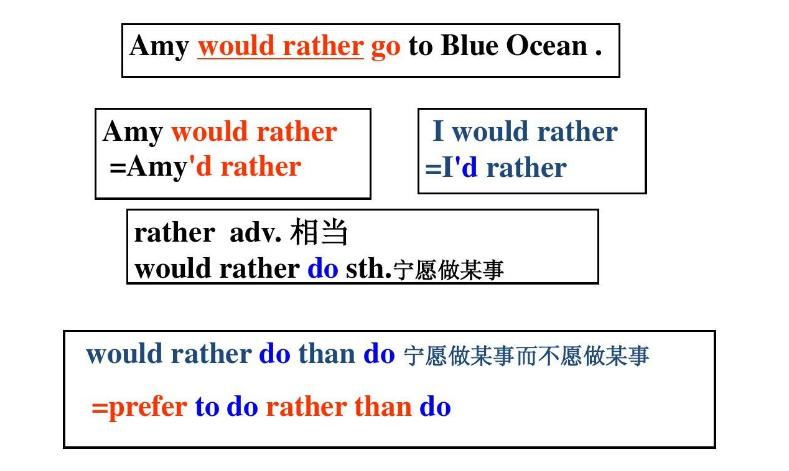leave的用法如下:
leave除了作“离开”解以外,还有以下几种特殊用法:
一、作“留下”、“丢下”、“落下”,常表示某物落在/忘在某地。
如:
You'd better leave your address and telephone number. 缓历
你最好留下你的地址和电话号码。
Better take off your shoes and leave them outside.
最好把鞋脱掉,放在外面。
I left my key in the readingroom.
我把钥匙忘在阅览室了。
二、 表示“留给”、“交给”,一般与介词with或to搭配。如:
Leave it with / to me and I'll see what I can do.
把它交给我,我就知道该怎么办。
He has left a number of books with / to me.
他把好些书都存在我这儿/留给了我。
注意: leave sth with sb, 表示“暂存”,以后还要取回。leave sth to sb, 表示以后不再索还。
三、 leave作使役动词,表示“使/ 让保持某种状态”。
① 用形容词作宾语补足语
Leave the door open when you go out.
出去时,不肢蚂要关门。
② 用不定式作宾语补足语
Leave him to do it himself.
让他自个儿去做。
③ 用现在分词作宾语补足语
They walked off and left me sitting there alone.
他们走开了,让我一个人坐在那儿。
④ 用过去分词作宾语补足语
Did you leave the doors and windows properly fastened?
你把门窗关好了吗?
⑤ 还可用名词、介词短语等作宾语补足语
He left his schoolbag on the playground. 他把书包丢在操场上了。
四、 leave的过去分词left,常用作后置定语,表示“剩下的”。如:
I've got two tickets left for tonight's film.
今晚的电影票我有多余的两张。
造句:
1、Maybe he intends to leave her.(也许他打算离开她。)
2、When do you leave for work ?(你什么时候去上班?)
3、'leave me alone!' she hissed.(“别烦我!”她生气地低声说。)
4、l don't want to leave anything behind.(我不想留下任何东西。)
5、you mustn't leave the gate open.(你一定不要让大门敞开着。)
6、l was preparing to leave.(我正准备离开。)
7、They won't let him leave the country.(他们不许他离开这个国家。)
8、No student is to leave the room.(学生一律不许离开这房间。)
9、You are all forbidden to leave.(你们都不准离开。)
10、l would never leave here voluntarily.(我永远不会自愿地离开这里。)
11、I'm afraid you leave me no choice.(恐怕你没给我留下选择的余地。)
12、He was among the last to leave.(他是最后离开者之一。)
13、"Aw,leave her alone," Paul said.(“哦,别烦她扰饥搜。”保罗说。)
14、You can leave the cooking to me.(你可以把做饭的事交给我。)
15、l can't very well leave now.(我现在离开不太合适。)





